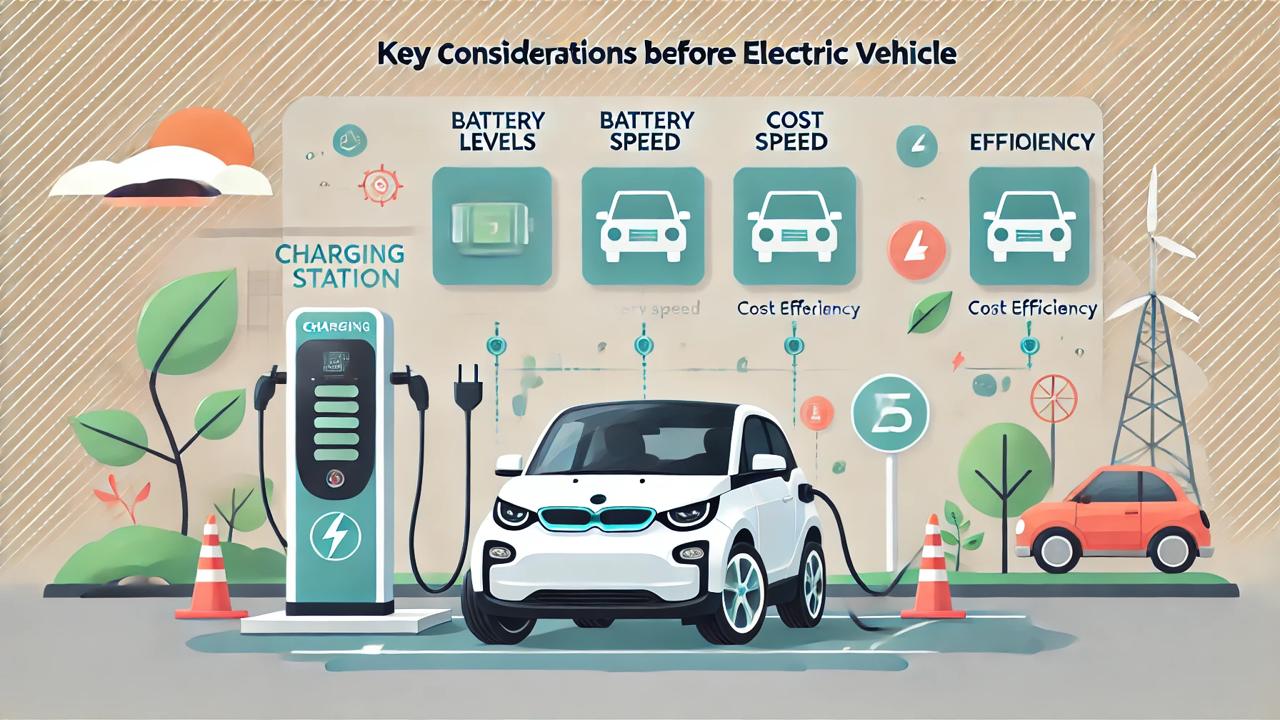What You Should Know Before Charging Your Electric Vehicle

Electric vehicle (EV) ownership has been rapidly increasing in recent years, and these vehicles are gaining great attention not only for their environmental friendliness but also for their low operating costs and silent driving experience. However, for those who are new to driving electric cars or planning to start charging, there are several important things to consider. In this article, you will find the essential information you need to know before charging your electric vehicle.
-
Determine Your Charging Needs Charging requirements for electric vehicles vary depending on the vehicle's battery capacity and your usage habits. If you use your car daily, you may need to charge it more frequently. On the other hand, if the vehicle is not used frequently, there may be no need to charge it every day. When determining how often to charge, it’s important to consider your car's range and daily usage.
-
Learn the Different Charging Types There are three main types of charging for electric vehicles:
-
Home (AC) Charging (Level 1): This type of charging is done by connecting to a standard home electrical outlet. However, this method is slow and can take 12-24 hours to fully charge the vehicle. It is suitable for overnight charging at home.
-
Fast (DC) Charging (Level 3): Fast chargers fill your vehicle's battery much more quickly. These charging points are usually located in public areas, along highways, or at shopping malls. You can charge about 80% of your battery in just a few hours.
-
Medium-Speed (AC) Charging (Level 2): This type of charging is found in public charging stations and is faster than home charging. A Level 2 charger can fully charge your vehicle in 4-8 hours.
-
Charging Stations and Accessibility The number of charging stations for electric vehicles is increasing every day. However, it’s important to note that charging stations are not available everywhere and can sometimes be crowded. If you plan on long trips, it can be helpful to map out the locations of charging stations in advance. Many apps show nearby charging stations, making your journey more efficient.
-
Battery Status and Charge Level For an electric vehicle's battery to function optimally, it must be charged correctly. Try not to let the battery drain to 0%. Modern batteries typically last longer when charged between 20% and 80%. Charging your vehicle to full capacity can reduce the battery's lifespan, so it’s essential to maintain this balance when charging.
-
Don’t Overcharge Your Vehicle Many electric vehicles advise against continuing to charge after the battery has reached full capacity. Doing so can shorten the battery’s lifespan over time. Most modern electric vehicles automatically stop charging or slow the charging speed once the battery reaches 100%, which helps prevent overcharging.
-
Pay Attention to the Quality of the Charging Device The charging device you use is crucial for the safety of your vehicle and the health of the battery. Always use certified and high-quality charging devices. Poor-quality chargers can have negative effects on the battery and pose safety risks.
-
Check Your Charge Status Before Traveling Before embarking on long trips, always check your vehicle’s charge status. This is particularly important for electric vehicles because, unlike traditional vehicles, you can’t stop at a gas station on every corner. Make sure your vehicle has sufficient charge before you hit the road.
-
Temperature and Weather Conditions Hot weather can negatively affect the charging speed, while cold weather can reduce battery efficiency. In extreme heat or cold, electric vehicles may take longer to charge or provide a reduced range. Therefore, it's important to consider environmental conditions while charging your vehicle.
-
Charging Costs Charging services for electric vehicles may incur a fee. These charges can vary depending on the location of the charging station, the type of charging used, and even the time of day. If you're using public charging stations, it's helpful to be aware of the charging costs.
-
Charge Your Vehicle Regularly To keep your electric vehicle's battery healthy, regular charging is essential. Leaving the battery too long without charging or overcharging it can shorten its lifespan. Therefore, charging your vehicle to a certain level helps keep the battery functioning efficiently.
Conclusion Charging an electric vehicle is a straightforward and safe process when done with the right information. Understanding the types of charging and the appropriate charging times for your vehicle will help your car perform efficiently and ensure the battery stays healthy for a long time. Also, being aware of charging stations and prices will make your travels more efficient. Electric vehicles are the cars of the future, and with the right charging knowledge, you can make the most of the advantages this technology offers.










